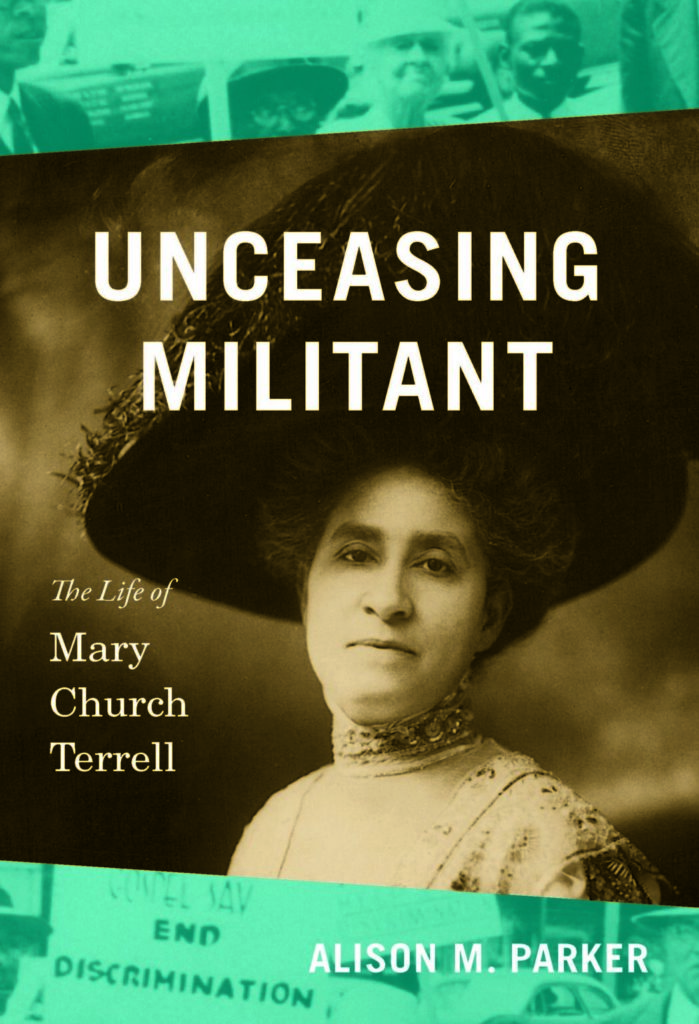Mary Church Terrell, Black Educator Hall of Fame Member
Mary Eliza Church Terrell, education activist and trailblazer, was born in September of 1863 in Tennessee. Terrell’s parents were successful business people, although they were once enslaved; her mother owned a hair salon and her father was one of the first Black millionaires in the South.
Her family’s affluence and belief in the importance of education enabled Terrell to attend the Antioch College laboratory school in Ohio, and later Oberlin College, where she became one of the first Black women to earn a bachelor’s degree in the United States. She later returned to Oberlin where she earned her master’s degree. In 1913, Terrell became an honorary member of the newly founded Delta Sigma Theta sorority at Howard University, and she received an honorary degree in humane letters from Oberlin College in 1948, as well as honorary degrees from Howard and Wilberforce Universities.
Professionally, Terrell was a professor and principal at Wilberforce University and two years later, she moved to Washington D.C. to teach at the M Street Colored High School (Dunbar High School), where she met her husband, Robert Terrell as well as reconnected with lifelong friend Frederick Douglass. She was a contemporary of Anna Julia Cooper, two historic eduactivists.
In 1895, Terrell became the first Black woman appointed to the District of Columbia Board of Education, where she assisted with the administration of a Black school district and Congressional appropriations requests for Washington, D.C. schools.
And, of course, as an fierce education activist, Terrell was heavily engaged in activism on behalf of Black women. Black liberatory movements have used one of Terrell’s most famous quotes for generations:
Lifting As We Climb
In 1892, Terrell founded the Colored Women’s League of Washington where she both organized and taught. In 1896, Terrell founded the National Association of Colored Women, where she was elected president and even given the honorary title of “President for Life.” Terrell was also a co-founder and charter member of the National Association for the Advancement of Colored People (NAACP).
Terrell used her strengths and learnings as a Black woman to fight against the oppression Black women faced, remarking that Black women were
…the only group in this country that has two such huge obstacles to surmount…both sex and race.
Terrell tirelessly advocated for Black women’s suffrage, she worked with Ida B. Wells-Barnett on anti-lynching campaigns and she was often invited to speak at both Tuskegee and Atlanta Universities at the request of Booker T. Washington and W.E.B. DuBois, respectively.

In the 1950s, Terrell helped organize sit-ins and boycotts to protest segregated restaurants in Washington D.C., which secured one of the first civil rights victories; the Supreme Court decision that declared segregated eating facilities as unconstitutional. Terrell authored her autobiography, “A Colored Woman in a White World,” detailing a Black blueprint for fighting discrimination and building a Black nation. Her speech, “In Union There Is Strength,” should continue to be a banner and lesson for us all
She knew that Black Lives Matter When Black Minds Matter.
Terrell was an intellectual and activating force. Her life was a conduit for the liberation of the Black body and the Black mind. She knew that Black Lives Matter When Black Minds Matter. Her life is an example of the important work of intersectionality; the idea that in the struggle for freedom, our identities cannot be compartmentalized. We must account for the totality of who we are in order to achieve public policies and rights that honor our humanity.
For more information on Mary Church Terrell, visit the Library of Congress.










